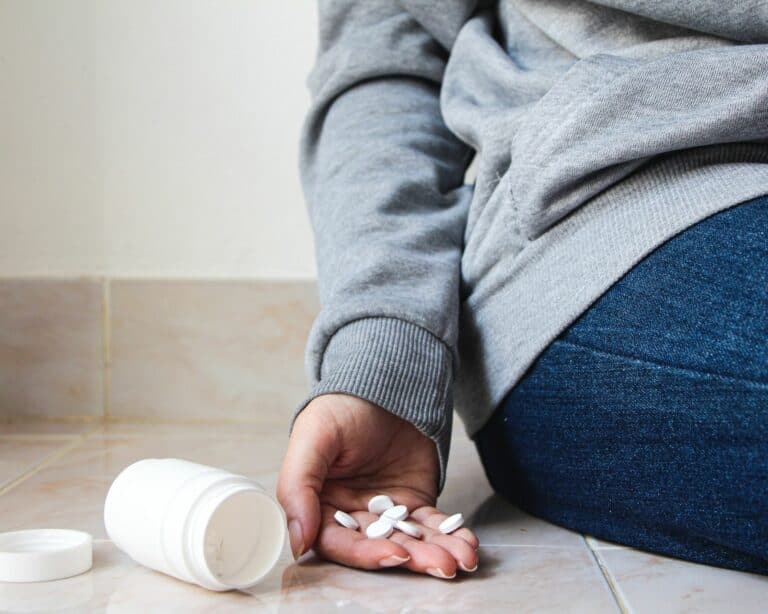Many people suffer from mental health conditions in America. According to the National Institute of Mental Health, “Nearly one in five U.S. adults live with a mental illness.”[1]
If you suffer from mental health issues, you must receive professional treatment. Unfortunately, many people do not receive the care they need. According to the National Alliance on Mental Illness, out of the people who sought help for their condition, nearly 5 million of them were unable to access the care they needed.[2]
Living with an untreated mental health condition can be extremely difficult, as many of these illnesses impact your ability to function daily. This can cause you to seek outside ways to soothe the symptoms of your condition. Sadly, this often leads to self-medication through the use of alcohol or drugs.
If you got addicted to drugs or alcohol as a result of self-medicating, an addiction treatment center like Woburn Addiction Treatment can help.
What is Self Medicating?
Self-medicating refers to the use of alcohol or drugs in an attempt to manage distressing symptoms of a mental health condition. While you may be self-medicating a previously diagnosed condition, it is possible to self-medicate the symptoms of an underlying condition you are unaware of. For example, if you feel anxious and worried constantly, you may begin abusing alcohol or marijuana to feel calm and more confident in social situations.
If you are self-medicating, it is usually for one of two reasons:
- Substances seem to make the feelings of distressing situations feel more manageable at the moment, serving as a coping mechanism.
- You are unable to find another way to deal with your feelings or mental health condition, causing you to abuse substances.
When it comes to self-medication, it is most commonly done to limit the symptoms of anxiety and mood disorders. One study found that 22% of people with an anxiety disorder, 21% of people with PTSD, 23% of people with depression, and 41% of people with bipolar disorder used substances as a form of self-medication.[3]
Are You Self-Medicating?
If you are worried that you are self-medicating, there are a few signs and symptoms that can indicate that you are using substances as a negative coping mechanism.
Some of the signs of self-medication include:
- Using drugs or alcohol during times of negative thoughts or emotions
- Feeling like you cannot feel “normal” or happy without substances
- Isolating from friends and family to use substances
- Sudden changes in hobbies or how you spend your time
- Sudden feelings of anger and mood swings
- Being secretive about how you spend your time
- Neglecting personal hygiene
- New financial problems due to spending your money on drugs and alcohol
One of the most common feelings that people self-medicate is stress. If you find that you reach for the bottle in times of worry, stress, or anxiety, you are most likely suffering from self-medication. While this can help you feel better at the moment, abusing substances often worsens mental health issues over time.
Some people are more susceptible to self-medication. If you relate to the following risk factors, you are at a high risk of self-medicating your mental health condition:
- You have experienced childhood trauma
- You have not attended professional treatment for mental health issues, like therapy or a residential program
- You’ve experienced intense emotional situations
- You’re a victim of physical, emotional, or sexual abuse
- You suffer from depression, anxiety, bipolar disorder, schizophrenia, or another mental health condition
How to Stop Self-Medicating
Compulsive self-medication often leads to the development of addiction. If you suffer from self-medication and experience symptoms of withdrawal when you cannot use drugs or alcohol, you most likely have a substance use disorder. The best way to stop self-medicating is to attend a professional dual diagnosis treatment program that can help you learn to manage your mental health condition without the use of substances.
If you are trying to stop self-medicating, you can
- Attend therapy if you are not suffering from addiction yet
- Go to outpatient dual diagnosis treatment
- Enroll in an inpatient dual diagnosis treatment program
- Attend peer support groups
- Learn positive coping strategies
- Recognize your problem with substances
- Change your beliefs about substance use and self-medication
Treating the Root Cause of Your Addiction
When you suffer from self-medication, the key to recovering is treating the root cause of your substance abuse issues. Whether you struggle with a mood disorder, anxiety condition, or a mental health issue like schizophrenia, it is important to treat your underlying psychiatric disorder. Attending a dual diagnosis addiction and mental health treatment center can help you do exactly that.
Dual diagnosis treatment programs use an individualized approach to mental health and addiction treatment that helps to provide you with the exact type of treatment you need. Everyone is different, so each person requires varying forms of treatment to tackle their underlying issues.
By using a combination of addiction treatment methodologies, behavioral therapy, and peer support, professional treatment can help provide you with the symptom relief and management skills you need to overcome the desire to self-medicate.
Additionally, dual diagnosis programs emphasize the importance of relapse prevention skills, which help you avoid experiencing a mental health or substance abuse relapse.
Relapse prevention planning provides you with the following services:
- A list of triggers and coping mechanisms to use in times of need
- Continued therapy and group counseling
- Referrals to additional programs like outpatient treatment or sober living
- Continued medication management for psychiatric disorders if needed
- A network of support to call when times get tough

Get The Care You Need and Deserve
Woburn Addiction Treatment is a leader in the addiction treatment field, with proven success in facilitating long-term recovery. Our team of top clinical & medical experts specializes in treating addiction coupled with mental illness, ensuring that each person receives individualized care. Call us – we’re available 24/day, 7 days/week.
Finding Help for Drug Addiction and Mental Illness
Suffering from co-occurring disorders is never easy, especially if they are untreated. In a dual diagnosis treatment program, you or your loved one could receive the addiction and mental health treatment you need to recover. Contact Woburn Addiction Treatment today to start your recovery journey.
References:


